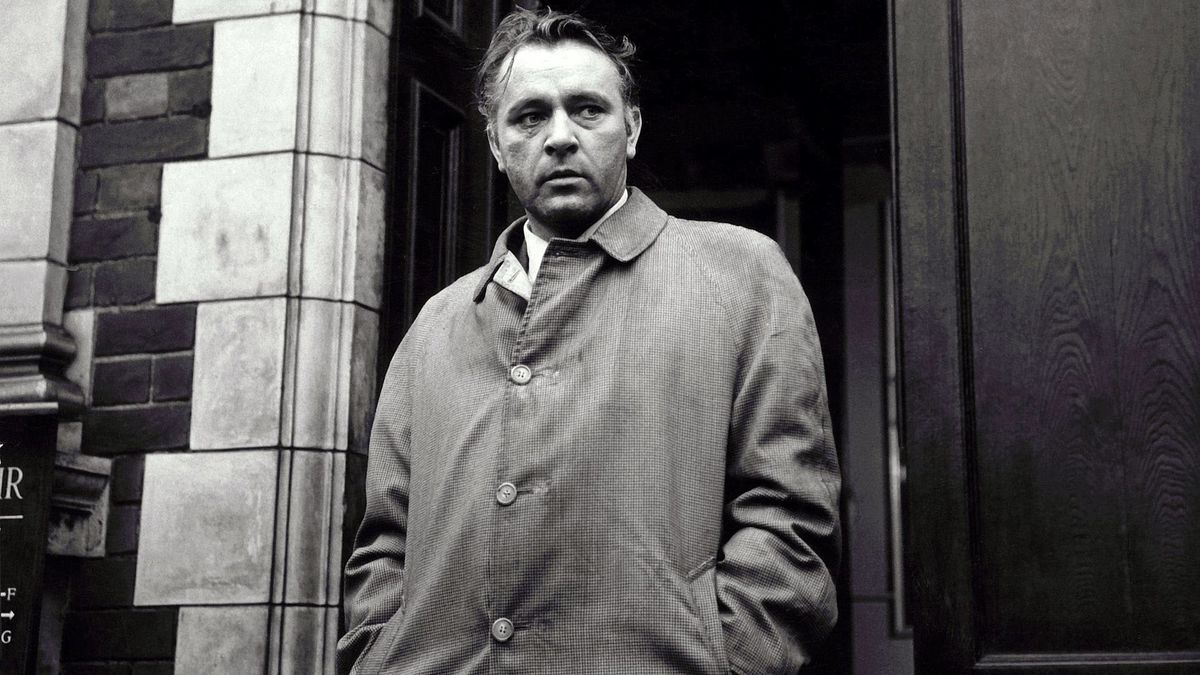The Spy Who Came in from the Cold marked a fork in the road for the spy movie. The British film industry had just seized upon Ian Fleming's 007 books, launching a series centred on a party-hearty action man swanning from one global hotspot to the next; here, Paramount went against studio-system type in turning to John le Carré's far bleaker fiction, introducing us to Alec Leamas (Richard Burton), a lonely, greying middle-aged voyeur, drowning his copious sorrows not with Martinis but half-bottles of whisky, carried home in the rain from smoky South London boozers. The instruction he receives from his paymasters at one point could hardly be less beneficial for his health: "Continue to be embittered, continue to drink." Needless to say, it makes a great role for Burton - perhaps the greatest the movies ever troubled to hand this actor, requiring him to draw deep on his air of self-recrimination, wasted talent, of intelligence put to no good or constructive use. What le Carré had realised - and this was a radical departure - was that the spy game was at least as much a matter of inaction as action. The movie opens with Leamas standing helpless at Checkpoint Charlie as a potential defector is gunned down in front of him; thereafter, he's packed off to menial work in a reference library, but he's forced to make a new life for himself - and to take on one final assignment - after he's jailed for scuffling with a shopkeeper, the violence instilled in him professionally coming out in entirely the wrong place.
Even when it switches from baleful character study to plotty thriller - with Leamas sent to infiltrate another group of defectors, his status as a disaffected old soak providing the perfect cover - the director Martin Ritt holds to a certain realism. Oswald Morris's location shooting continues to stand as a valuable record of London as it was by day circa 1965, following Leamas into a succession of shabby, non-swinging halfway houses fit for a figure described as "a wanted, spent, dishonest man... the lowest currency of the Cold War." During this section, Spy becomes its own austerely distinct thing - spy movie as post-Antonioni art movie, more alienated than agitated - but it's also the place where you begin to see why the Bonds took off as they did, leaving le Carré behind: what the author gave us, and Ritt stuck to, was static and wordy, albeit blessed in this telling with an excellent support cast engaged in filigreed double-talk. What sightseeing there is - days out on drizzly Mitteleuropan beaches and parkland - feels a stretch, a means of breaking the chatter up, and it recedes as the narrative squeeze is felt; the last act is a courtroom drama in which the character laid bare over the preceding ninety minutes is literally put on trial and found wanting. That at least builds up a counterweight the cinema (and perhaps the world) really needed in 1965, a reminder that the Cold War wasn't all self-contained fun-and-games, that it too racked up more than its fair share of casualties to be mourned. Where Fleming was trading in comforting, comic-book fantasy, le Carré was forever closer to spy-movie journalism, its agonised conscience. You will have your own allegiances, but it wouldn't stop you from defecting back and forth between them every once in a while.
The Spy Who Came in from the Cold is available to stream via Amazon Prime.

No comments:
Post a Comment